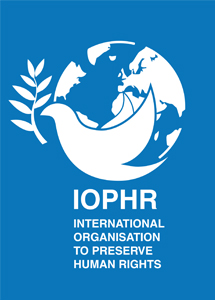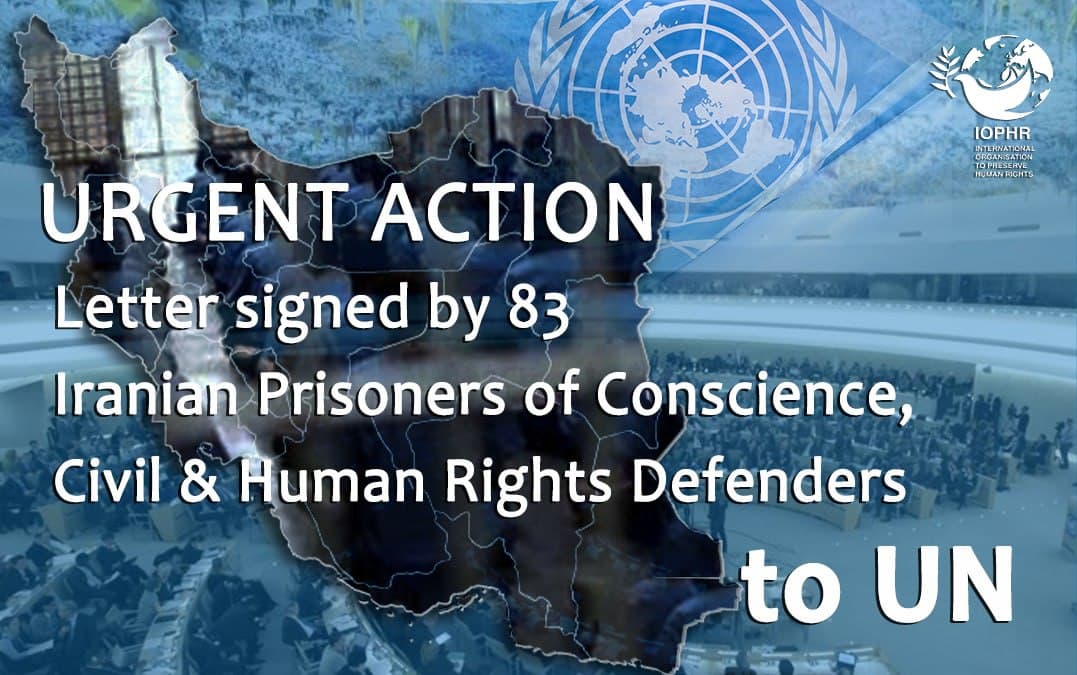Your Excellency the Chairman and members of the United Nations Human Rights Council,
Given that human rights violations in the Islamic Republic of Iran have become systematic, and routine, and numerous repeated resolutions condemning the regime by the UN human rights council, have not resulted even in the slightest change in the Iranian Regime’s behaviour, it seems further efforts are required in the clarification of the broad dimensions of the Iranian Regime’s human rights abuses.
What should be abundantly clear is that the Iranian Regime has systemically placed unbearable pressures on different groups of the Iranian people, such as: Women, ethnic, religious, and all minorities, the latest example of which is the killing of Baluch minorities in the Sunni region of Sistan and Baluchistan, as well as the continuous killing of Kurdish citizens who barely make a living. Sadly, it also seems that the human rights situation in Iran has worsened considerably since the massacre of 1500 or more innocent protestors during November 2019 protests. As the regime has now placed even more pressure on the activists and political prisoners. The way the Regime deals with these groups is much worse than the way it deals with other defendants, and consequently all human rights organisations should pay even more attention to the plight of political prisoners!
Political prisoners in Iran are facing arbitrary and offensive detentions, long-term house arrests, so-called arbitrary killings, illegal trials and illegal verdicts by the revolutionary courts without due process of law; and shameful ill-treatment of political and ideological prisoners convicted by the these illegal courts, all of which are very shocking!
The following is simply a small list of the harsh treatments faced by political prisoners in Iran:
1- According to Article 159 of the Constitution of the Islamic Republic, the judiciary is the official point of reference to file grievances and complaints, and the establishment of courts and their jurisdiction is subject to the rule of law. However, contrary to this principle, in practice illegal courts are established by the Supreme Leader, which are outside the provisions of Article 159, and constantly issue, and issue very heavy judicial sentences and executions!
2 – According to Article 168 of the Iranian Constitution: The prosecution of political defendants and those accused of crimes related to journalism, information or press, must be held in the courts of justice in public and in the presence of a jury. But in practice, political defendants and even the press are bared entry to these revolutionary courts, which are held behind closed doors, without the presence of a jury, and generally without the presence of even a trial lawyer! During which heavy sentences are issued against defendants, without any adherence to the principles of a fair trial!
3. Despite the recent passage of the Political Crime Law, and in violation of Article 168 of the Constitution and the Political Crime Act, political activists are considered to have committed national security crimes, and thus civil, political, press, and even environmental activists are excluded from public trials. Therefore, these defendants are deprived of justice and the presence of a jury.
4. Political convicts who are considered by the government as a security risk, in practice live in fear of their live. As they are either killed by law enforcement agencies during the investigation process, or like Zahra Kazemi, Sattar Beheshti, Ali Akbar Saeedi Sirjani and many others, such as: Hoda Saber, Mohsen Rouhalamini, Mohammad Kamran, Amir Javadifar, etc. are killed in prisons by various other means.
5. In many cases, political prisoners are held with the most dangerous prisoners such as murderers, serial killers, and armed robbers, and as a result often end up being killed by these dangerous prisoners, such as in the case of Mr. Alireza Shirmohammadi and many others like him.
6- Political prisoners and prisoners of conscience also lack proper health care, and are held in confined spaces, and thus face many other problems in the Iranian prison system that places their very lives in danger.
7- Political prisoners’ rights are also ignored in terms of medical examinations by trusted doctors of the prison, and even medical examiners’ verdicts are also ignored by the regime! As shown by the case of Behnam Mahjoubi who was medically ruled to be ineligible for prison, and was issued a certificate of ineligibility by the Iranian medical examiner’s office. Yet, despite this he was kept in intolerable conditions, and was subsequently murdered through poisoning. Then, there is the case of a well-known figure such as Mohammad Nourizad, who despite receiving several medical certificates of ineligibility for imprisonment, has been kept in the worst possible conditions in prison, and for months he was not even allowed to call his family! While his son (Ali) has also been sentenced to 3.5 years in prison for simply sympathising with those killed in the Ukrainian plane downing, and is being held in the worst possible conditions.
8- Deprivation of political prisoners’ basic rights such as access to newspapers, books, furloughs, telephones, televisions, air conditioning, etc.
9. Torture and beatings of political prisoners, has sadly also become commonplace in the Iranian prison system.
10 – Keeping of political prisoners in solitary confinement for continuous and prolonged periods.
11- Forcing political prisoners to make televised confessions, and enforcing public floggings.
12. Kidnapping and killing of political activists inside and outside the country, such as the case of Ruhollah Hazm, who was executed after his abduction.
Therefore, in view of the above points, we, the signatories of this statement, request your Excellency and the human rights circles, especially the UN Human Rights Council, to convene an extraordinary and urgent meeting to address these issues. In order to take immediate and effective decisions beyond the normal condemnations we have seen recently, and find a way to force the Iranian Regime to comply with all international human rights conventions.
We the signatories of this letter appreciate your immediate attention to this urgent matter.
1. Reza Aylor, civil activist
2. Behnam Ebrahimzadeh
3. Zahra Ebrahimi, civil activist
4. Zaratosht Ahmadi Ragheb, civil activist, former political prisoner
5. Masoud Akhtarani Tehrani, Independent Journalist
6. Fereshteh Osanloo, civil activist
7. Osanloo’s the mother of the prisoner Afshin Osanloo
8. Reza Asadi, civil activist
9. Amir Massoud Akbarabadi, journalist
10. Roozbeh Ekradi, civil activist
11. Shahnaz Akmali, the mother of Mustafa Karim Beigi, martyr of Ashura 88
12. Akbar Amini Armaki, human rights activist, former political prisoner
13. Mehran Bakhtiar, National Liberation of Iran
14. Ishrat Bastanjani, civil activist
15. Vahid Beheshti, Human Rights Defender, Media Director at Dorr TV
16. Kamal Jafari Yazdi, civil activist, political prisoner
17. Pouya Jagrvand, a civil activist
18. Ali Jalili, former political prisoner
19. Hamideh Jolaei, civil activist
20. Reza Hazrati, civil activist
21. Yasmin Hanifa, civil activist
22. Mohammad Reza Khosravi, political activist
23. Hashem Khastar, political activist, representative of Iranian teachers, political prisoner
24. Mohammad Reza Khansari, political activist
25. Ghulam Hussain Dost Ali Maki, Lawyer
26. Mohammad Dehghan, civil activist
27. Raheleh Rahempour, the family of those executed in the 1980s
28. Amir Razaghi, from the National Liberation of Iran
29. Roghayeh Zarehpour, civil activist
30. Koroush Zaeem, political activist, former political prisoner
31. Hashem Zeinali, the father of “Saeed Zeinali” who was kidnapped by the Iranian regime since 1997 and has been missing since, without any information.
32. Fatemeh Sepehri, civil activist, former political prisoner
33. Mohammad Hossein Sepehri, human rights activist, political prisoner
34. Parviz Safari, political activist
35. Arash Soleimani, civil activist
36. Mohammad Seifzadeh, professor and human rights defender, and former political prisoner
37. Qassem Sholeh Saadi, lawyer, political activist, banished university professor, and former political prisoner
38. Gohar Shemirani, civil activist
39. Rafat Shahabi, civil activist
40. Fatemeh Sadeghi, civil activist
41. Heshmatollah Tabarzadi, The Secretary General of the Democratic Front of Iran, former political prisoner
42. Mehryar Zafarmehr, human rights activist
43. Monireh Abdi, The wife of political prisoner “Esmail Abdi”
44. Hojjatullah Asgari, civil activist
45. Gohar Eshghi, The mother of Sattar Beheshti’s -who was martyred under the torture by the regime
46. Abbas Ghaffari, civil activist
47. Manijeh Fathi, civil activist
48. Assadollah Fakhimi, human rights activist, former political prisoner
49. Houri Farajzadeh Tarani, civil activist, former political prisoner
50. Raheleh Farajzadeh Tarani, civil activist
51. Mansour Faraji, human rights defender, former political prisoner
52. Mohammad Ghaemi, from the National Liberation of Iran
53. Maryam Gholizadeh, civil activist
54. Rasoul Kazemi, civil activist
55. Amin Kurd, from the National Liberation of Iran
56. Maliha Karim al-Dini, civil activist
57. Mehrdad Grivani, civil activist, former political prisoner
58. Javad Lal Mohammadi, cultural activist, former political prisoner
59. Sedigheh Malikifard, the wife of Hashem Khastar, political prisoner
60. Afsaneh Modbar, a civil activist
61. Jalal Modaber, political activist
62. Farideh Moradkhani, human rights defender, former political prisoner
63. Jalil Mushtaq, civil activist
64. Akram Mesbah, civil activist
65. Farangis Mazlum, the mother of Soheil Arabi, political prisoner
66. Ismail Muftizadeh, political activist
67. Fatemeh Maleki, the wife of Mohammad Nourizad and mother of Ali Nourizad, both of whom are current political prisoners
68. Helen Monshizadeh, civil activist
69. Narges Mansouri, human rights activist, former political prisoner
70. Azadeh Mousavi, human rights activist
71. Hamideh Molaei, civil activist
72. Mohammad Mahdavifar, civil activist, former political prisoner
73. Omid Nasehi Fard, civil activist
74. Hassan Nayeb Hashem, human rights defender
75. Mohammad Najafi, lawyer, political prisoner
76. Akram Niqabi, the mother of “Saeed Zinali” who was kidnapped by the regime since 1998 and is missing without further information about her!
77. Kambiz Nourizadeh, civil activist, former political prisoner
78. Hossein Nourizadeh, civil activist
79. Soroush Nourizadeh, civil activist
80. Nasser Nourizadeh, civil activist
81. Abbas Vahedian Shahroudi, civil activist, former political prisoner
82. Mohammad Moghimi, lawyer
83. Mohammad Nickbakht, former political prisoner and activist
Copy:
Mr Javaid Rehman, the UN Special Rapporteur on Iran, the UN Special Rapporteur on Iran

